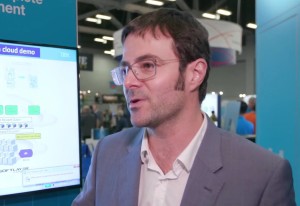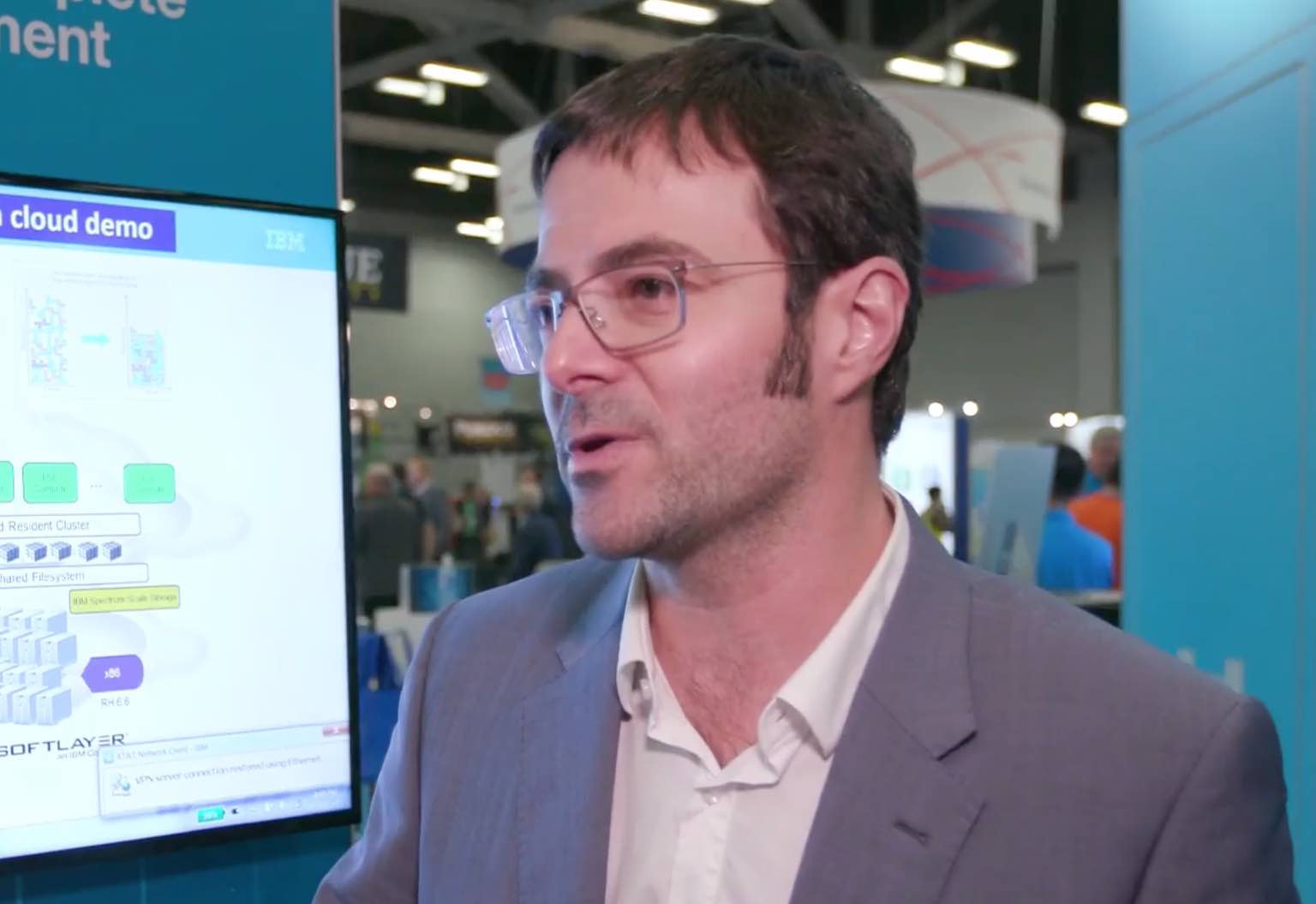Getting started with HPC can be a challenge for SMEs, but managing a cluster doesn’t have to be a struggle. IBM’s Platform Computing group has been helping users to stand up and run clusters efficiently for years. Now, with the recently announced IBM Platform LSF Suites for Workgroups and HPC, the company has made it easier than ever to get kick the tires on High Performance Computing. To learn more, we caught up with Gabor Samu from IBM.
insideHPC: Welcome to The Rich Report, a podcast with news and information on high performance computing. Today, my guest is from IBM in the platform group we have Gabor Samu. How are you doing this morning, Gabor?

Gabor Samu, IBM
Gabor Samu: I’m doing very well, Rich, thanks for asking. Spring has sprung up here in Canada, and with it we have some new and exciting news to share on the HPC Management software front.
insideHPC: Well great, Gabor, we have a slide deck here. Why don’t we go through that, and then we’ll follow it with a Q&A.
Gabor Samu: So IBM’s introduced a new way for organizations of all sizes to buy and acquire a full HPC management suite, and that includes the Community Editions for those that are just starting out with HPC. So maybe let’s start with a brief overview of the IBM Platform LSF family. Platform LSF is a powerful workload management software package for mission-critical HPC environments. It’s actually been around for more than two decades, and during that time it’s grown into a very broad family of products for managing HPC environments.
The LSF family has a number of add-ons that are geared towards three particular areas. The first is around enhancing the productivity of users, so we have add-ons which are focused on ease of use, simplification, and accessibility, and for that there’s web-based interfaces for managing jobs and tools to make the creation of work flows much simpler.
The second area is around operational efficiency. So as HPC environments grow in size and complexity, you have new technology like accelerators and things like that being introduced. We have add-ons that give you great insight in how the environments are being used. This is important for admin to have oversight on how things are performing in the environments, if there are bottlenecks, and also for future planning purposes.
And for the third category we have a set of add-ons that are geared towards driving the utilization in environments, and this is through capabilities such as license and dataware scheduling. So these capabilities are designed to help organizations respond to varying demands from their user communities and from the business. And that includes changing business priorities, which can change very rapidly, and really trying to squeeze the most out of the infrastructure that they have.
Platform LSF helps to speed time-to-solution with up to 150x greater throughput. So the reality is that organizations are often looking for more than just a workload scheduler. They’re looking for ease of use in administration. In other words, they want to make sure that their users are focused on R&D rather than computer science. So if we take all this into consideration, we’ve come up with a new way for organizations to buy and acquire a full HPC management suite.
Today we’re introducing the IBM Platform LSF Suites. These suites are far more than just a workload scheduler. They provide an all-in-one solution for HPC management from provisioning to installation to workload management up through the application portal. The suites provide some flexibility in terms of installation options as well, so you can install them using native installers, which assumes that you already have an OS installed, or we’ve also bundled IBM Platform Cluster Manager Community Edition, which is a bare metal provisioning tool that will deploy the Linux OS for you as well as the components of the IBM platform LSF Suites.
So LSF Suites include a workload scheduler as well as an application portal and an MPI Library. And we actually support both Linux on IBM Power8 Little Endian and x86/64. And finally, there’s two versions of the suites to suit different markets, ranging from work groups up to a divisional and supercomputing sites.
So let’s have a bit of a closer look at the two versions of the Suites. The first one is the IBM Platform LSF Suite for Workgroups, and that includes key capabilities that I spoke about earlier. You have the workload scheduler application portal, as well as cluster provisioning and management for those that want to manage the bare metal, and finally an MPI librarian. That happens to be for x86/64 only. Then we also have the platform LSF Suite for HPC, and that includes all of the capabilities of this week for workgroups, plus the workflow tool, which is to simplify the creation and management of complex computational workflows. Again here, the focus is all around user productivity.
And last but not least, there are two more packages that we’re very excited to announce as well. These are two no-cost downloads, which are available on IBM developer works. They are IBM Platform Cluster Manager Community Edition and IBM Platform LSF Community Edition. Platform Cluster Manager Community Edition is an infrastructure life cycle management tool, so from bare metal provisioning up through to application deployments, it gives you all of the tools you need for OS patching, monitoring, and reporting. And it’s all GUI-driven, and it supports up to 2500 nodes. Platform Cluster Manager Community Edition is included as part of the Platform LSF Suites that we spoke about earlier.
We’re also very pleased to announce the availability of IBM Platform LSF Community Edition. This is an ideal way for users that are new to HPC to explore the HPC management capabilities that IBM has to offer. It’s all via a no-charge download. Really, this wraps together Platform Cluster Manager Community Edition with a workload scheduler, application portal, and an MPI library. Again, users just need to register on IBM Developer Works to download these packages and I’ve included the two download links here.
insideHPC: Well, thanks for that, Gabor. Who did IBM Platform have in mind when they created these suites?
Gabor Samu: So, again, we have two suites which are available at a cost. One is a suite targeted for workgroups, so smaller type of environments and then a suite for HPC which is intended for larger divisional and supercomputing type customers, and then again at the bottom end we have the no-charge download which is intended for people to try out the capabilities that we have to offer.
insideHPC: So I’m envisioning a small enterprise maybe that does a lot of their computing on workstations, wants to do clustering, but, as we know, setting up a cluster and keeping it productive is kind of a long process, and it’s a learning experience. I would think having something like this would make this a much more streamlined process to get into cluster computing.
Gabor Samu: That’s exactly right. So basically, we would give you all the tools that would allow you to easily migrate from a loose collection of work stations to a small cluster environment. And we would handle the bare metal provisioning and then installing the software that you need really to manage your workload.
insideHPC: Well great, Gabor. So it sounds like this is just all about making it much easier for customers to get started with clustered HPC computing.
Gabor Samu: Yeah, we make it really easy to kick the tires. Whether you’re looking to strictly manage the infrastructure, we have a download for that. Then we have the more rounded download, which is the LSF Community Edition, which gives you all the pieces that you can use on a small scale.
insideHPC: Just to wrap up here, I want to thank you for coming on the show today and remind our listeners to try out the IBM LSF Suites for clustered computing.




